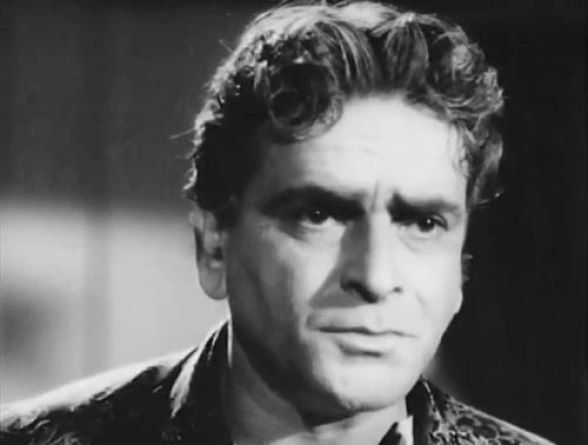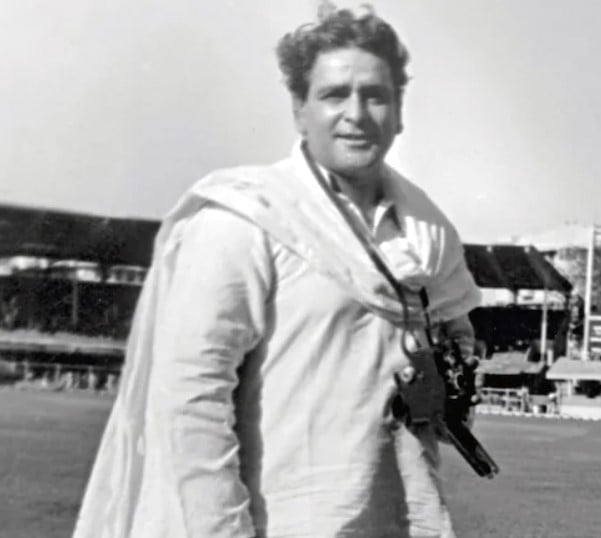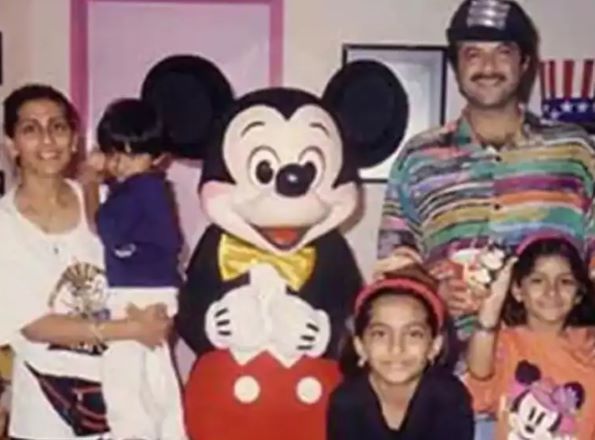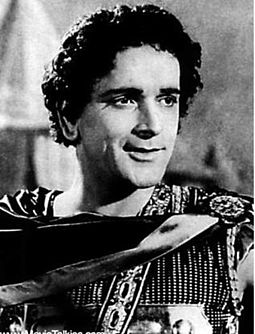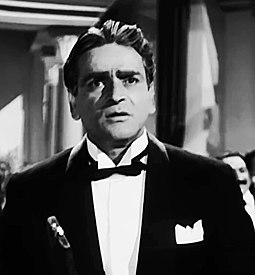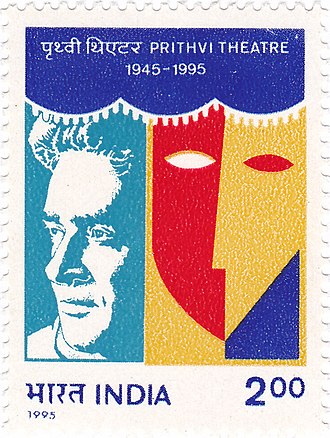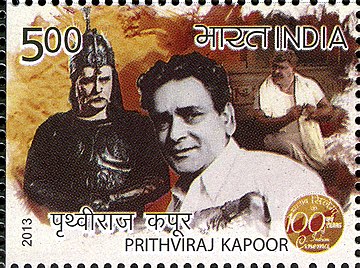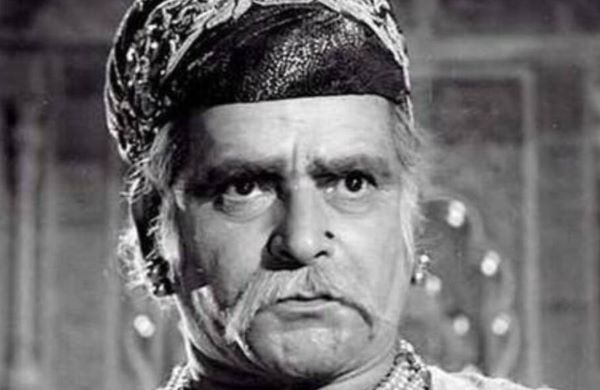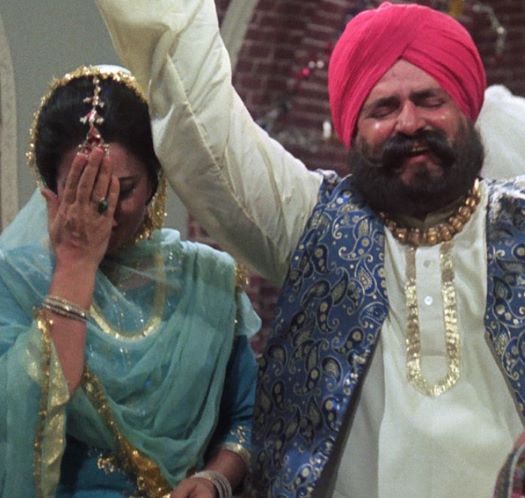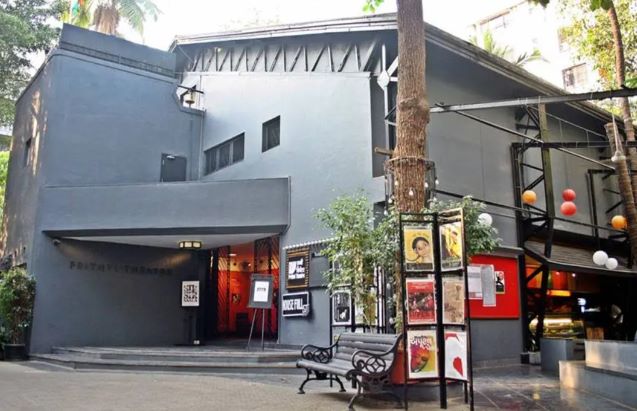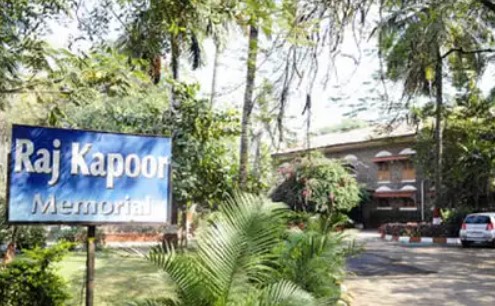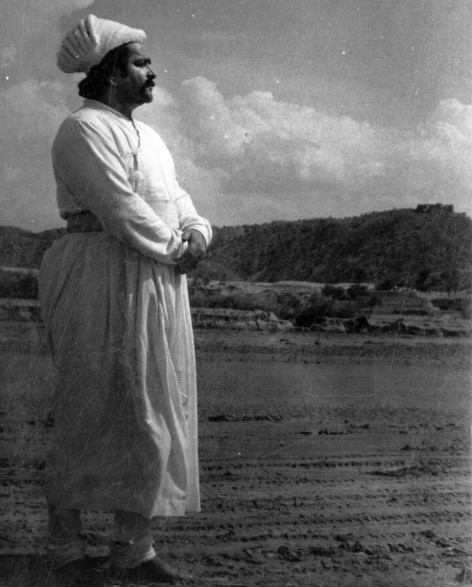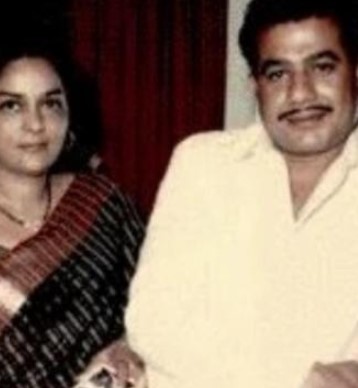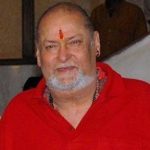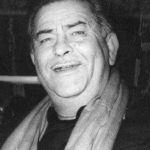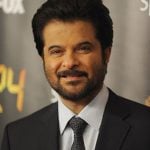Prithviraj Kapoor Age, Death, Wife, Children, Family, Biography & More
Quick Info→
Wife: Ramsarni Kapoor
Age: 65 Years
| Bio/Wiki | |
|---|---|
| Profession(s) | Actor and Filmmaker |
| Famous for | Pioneer of Indian theatre and cinema |
| Physical Stats & More | |
| Height (approx.) | in centimeters- 170 cm in meters- 1.70 m in feet & inches- 5’ 7” |
| Hair Colour | Black |
| Eyes Colour | Black |
| Career | |
| Debut | Hindi Film: Be Dhari Talwar (1929) |
| Last Film | Punjabi Film- Mele Mitran De (1972) |
| Awards, Honours | • 1954: Sangeet Natak Akademi Fellowship by the Sangeet Natak Akademi • 1956: Sangeet Natak Akademi Award by the Sangeet Natak Akademi • 1969: Padma Bhushan by the Government of India • 1972: Dadasaheb Phalke Award (Posthumous) for the year 1971 for his contribution to Indian theatre and cinema |
| Personal Life | |
| Date of Birth | 3 November 1906 (Saturday) |
| Birthplace | Samundri, Punjab, British India (present-day Punjab, Pakistan) |
| Date of Death | 29 May 1972 |
| Place of Death | Bombay (now Mumbai), Maharashtra, India |
| Age (at the time of death) | 65 Years |
| Death Cause | Cancer |
| Zodiac sign | Scorpio |
| Nationality | Indian |
| Hometown | Samundri, Punjab Province, British India |
| College/University | • Lyallpur Khalsa College, Jalandhar, India • Edwardes College Peshawar, Pakistan |
| Educational Qualification | B.A. from the Edwardes College in Peshawar, Pakistan [1]Hindustan Times |
| Caste | Khatri [2]Bengali Cinema: 'An Other Nation' |
| Relationships & More | |
| Marital Status (at the time of death) | Married |
| Family | |
| Wife/Spouse | Ramsarni Kapoor (m. 1923)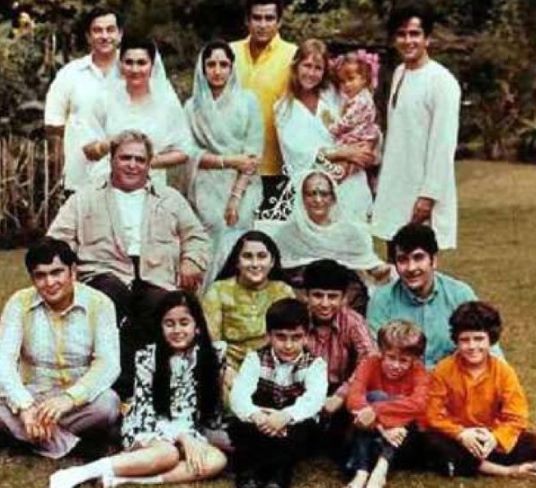 |
| Children | Son- 3 • Raj Kapoor • Shammi Kapoor • Shashi Kapoor • Daughter- Urmila Sial Kapoor 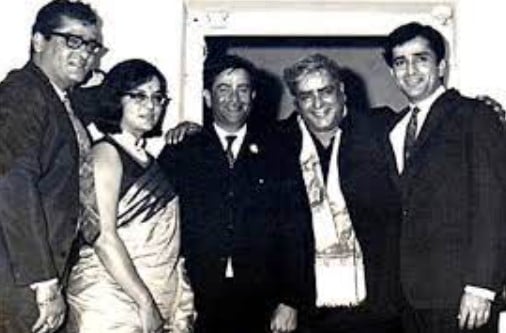 |
| Parents | Father- Basheshwarnath Kapoor Mother- Vaishno Devi |
| Siblings | Step Brothers- Trilok Kapoor, Amar, Ram, and Vishi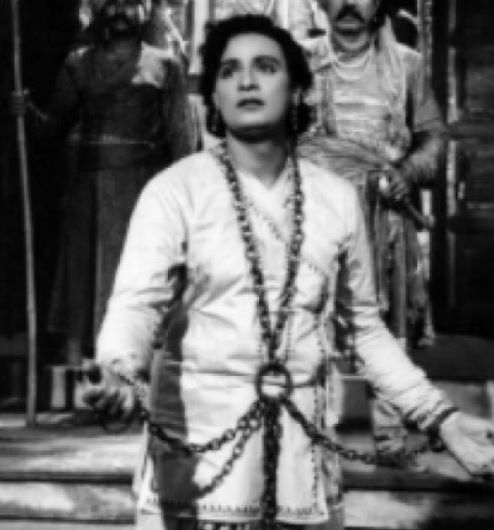 Step Sisters- Kailash, Prem, and Shanta 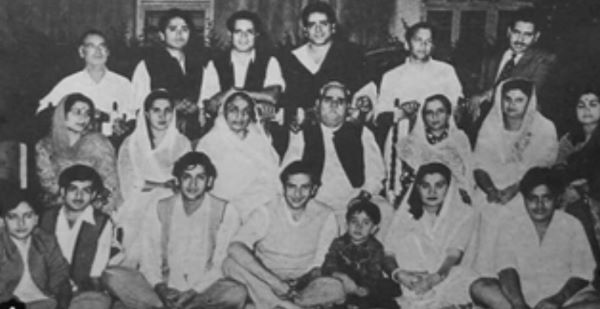 |
Some Lesser Known Facts About Prithviraj Kapoor
- Prithviraj Kapoor was an Indian actor and filmmaker. He is considered one of the founding figures of Hindi cinema. He was one of the founding members of the Indian People’s Theatre Association. In 1944, Prithviraj Kapoor founded the Prithvi Theatre, which was a travelling theatre company in Bombay. He was the patriarch of the Kapoor family in Bollywood. In 1951, in the film ‘Awara,’ his father, Basheshwar Nath Kapoor, played a short role. In 1969, he was honoured with the Padma Bhushan award by the Government of India, and in 1971, he was felicitated with the Dadasaheb Phalke award for his immense contribution to Indian cinema.
- Prithviraj Kapoor was born and brought up in a Punjabi Hindu Khatri family in Lyallpur, Punjab Province. He lived in the extended family of his grandparents. Later, the British government transferred his father to Peshawar in the North-West Frontier Province. Thereafter, his father called his entire family to shift to Peshawar with him. His father, Baseshwarnath, was a sub-inspector in the British police. When Baseshwarnath was posted in Peshawar, he enrolled Prithviraj Kapoor at Edwards College, Peshawar, Pakistan to receive his higher education. Later, Prithviraj joined one year program in law to become a lawyer but soon quit his studies to join theatre.
- He was the elder brother of Bollywood actor Trilok Kapoor. Surinder Kapoor, the cousin of Prithviraj Kapoor, is the father of famous Bollywood actors and producers Anil Kapoor, Boney Kapoor, and Sanjay Kapoor. According to Anil Kapoor, he lived in Prithviraj Kapoor’s garage for a few years when he shifted to Mumbai with his family as he had no place to stay. Later, Anil Kapoor moved to a chawl in Mumbai and lived in a rented room for a long time. [3]The Times of India
- Prithviraj Kapoor’s father, Basheshwarnath Kapoor, had three sons from his first marriage with Vaishno Devi, and two of his sons died young. Later, Basheshwarnath married again and had four sons named Trilok, Amar, Ram, Vishi, and three daughters named Kailash, Prem, and Shanta.
- Prithviraj Kapoor began his acting career when he was a teenager. He started his acting career by performing in the theatres of Lyallpur and Peshawar. Prithviraj Kapoor shifted to Bombay city in 1928 after taking some money on credit from his aunt. Soon after reaching Bombay, Prithviraj Kapoor started working with the Imperial Film Company, and the company provided him some Hindi movies with minor roles. Prithviraj Kapoor marked his acting debut in 1928 with the film Be Dhari Talwar as an extra. In 1929, Prithviraj Kapoor appeared in the film Cinema Girl as a lead actor. Thereafter, he appeared in 9 silent Hindi films including Sher-e-Arab and Prince Vijaykumar. In 1931, he appeared in India’s first talkie film, Alam Ara, as a supporting actor. In 1937, he appeared in the film Vidyapati. In 1941, he appeared in Sohrab Modi’s Sikandar as Alexander the Great, and his performance in the film was much appreciated. Soon, he became a part of the Grant Anderson theatre company, which was an English thetical company and was active in Bombay for just a year. With the passage of time, Prithviraj Kapoor developed the reputation of a very fine and versatile actor by simultaneously performing both on stage and on screen.
- In 1944, Prithviraj Kapoor started his own theatre group called Prithvi Theatres. By 1946, his eldest son, Raj Kapoor started producing several successful Hindi films. Meanwhile, Prithviraj Kapoor started performing in many theatre plays based on the Indian independence movement and the quit India movement, which highly influenced and inspired the young people of India to participate in India’s struggle for freedom. After 16 years of its existence, the ‘Prithvi Theaters’ staged over 2662 performances in which he appeared as the lead actor in every show. In 1947, the theatre play ‘Pathan’ became so popular that it was staged repeatedly nearly 600 times in Mumbai. During the 1950s, Hindi cinema replaced travelling theatre. Gradually, the cinema became a feasible and less costly way for the theatre group people. They started shifting towards the cinema as the financial return through ticket sales rapidly started diminishing, and the earnings were not enough to support the efforts of the theatre groups. Several fine actors, producers, directors, and technicians of Prithviraj theatres started moving to Indian cinema. His sons also chose the same path. When Prithviraj Kapoor was in his 50s, he stopped appearing in theatre plays and activities and started appearing in Hindi films, which were sometimes offered to him by his sons. In 1951, he appeared in the film Awara, which was directed by his son Raj Kapoor. Later, Shashi Kapoor and Jennifer Kendal merged Prithviraj Kapoor’s theatre with the Indian Shakespeare theatre company named “Shakespeareana.” This company was inaugurated on 5 November 1978 in Mumbai.
- The Government of India issued a special Rs. 2 postage stamp in 1996 during the Golden Jubilee year of Prithviraj Theaters. This postage stamp featured the picture of Prithviraj Kapoor along with the logo of his theatre with the dates 1945 to 1995.
- On 3 May 2013, the India Post and the Government of India issued another postage stamp on the occasion of 100 years of Indian cinema. This postage stamp also featured an image of Prithviraj Kapoor.
- In 1960, Prithviraj Kapoor appeared as the Mughal emperor Akbar in the film Mughal-e-Azam in which he gave the most memorable performance of his career.
- In 1963, Prithviraj Kapoor appeared in the film Harishchandra Taramati as a lead character. In 1971, Prithviraj Kapoor appeared as a grandfather in the film Kal Aaj Aur Kal with his son Raj Kapoor and grandson Randhir Kapoor. Later, he appeared in many Punjabi films including Nanak Nam Jahaz Hai (1969), Nanak Dukhiya Sub Sansar (1970), and Mele Mittran De (1972). In 1971, Prithviraj Kapoor made his debut in the Kannada movie Sakshatkara, which was directed by Kannada director Puttanna Kanagal.
- Prithviraj Kapoor was 17 years old when he got married to Ramsarni Mehra, who was then 15 years old. This was an arranged marriage in his own community. Their marriage took place in a very conventional Indian way. Reportedly, they entered into a wedding ceremony called the ‘Gauna’ ceremony, which was organised to indicate that now Ramsarni had reached the age of 15 and become old enough to leave the house of her parents. Later, Jugal Kishore Mehra, the brother of Ramsarni joined the Hindi cinema. On 14 December 1924, the couple gave birth to their first child, Raj Kapoor, who was born in Peshawar in the North-West Frontier Province. Prithviraj Kapoor was 18 years old when he became a father. In 1927, Prithviraj Kapoor moved to Bombay city in the Bombay Presidency, and by that time, he had become the father of three children. After three years, in 1930, Ramsarni also shifted to Bombay. In 1930, when his wife was pregnant for the fourth time, two of his sons died within a gap of one week. Devinder, who they fondly called Devi, died of pneumonia, and their other child Ravinder, who they fondly called Binder or Bindie, died by unknowingly swallowing the rat-poison pills in their garden. Later, his wife gave birth to three more children named Shamsher Raj or Shammi Kapoor, Balbir Raj or Shashi Kapoor, and a daughter named Urmila Sial. Shashi Kapoor and Shammi Kapoor became well-known actors and filmmakers in Indian cinema.
- Prithviraj Kapoor served as the Rajya Sabha Member from 3 April 1952 to 2 April 1960. He was honoured with the Sangeet Natak Akademi Fellowship in 1950. The Government of India awarded him the Padma Bhushan in 1969.
- Later, Prithviraj Kapoor settled near Juhu Beach in West Bombay in a cottage called Prithvi Jhonpra. After the death of Prithviraj Kapoor, his son Shashi Kapoor bought this cottage, which was later transformed by him into a small experimental theatre known as Prithvi Theatre.
- On 29 May 1972, Prithviraj Kapoor died of cancer. After fifteen days of his death, his wife also died of cancer. Later, a memorial of Prithviraj Kapoor was established by his family members at their farmhouse named “Rajbaugh.” This farmhouse is situated on the banks of the Mula-Mutha River in Loni Kalbhor village of Pune in Maharashtra. On this farm, Prithviraj Kapoor shot many of his films such as Satyam Shivam Sundaram, Mera Naam Joker, Bobby, and Prem Rog. After the death of Prithviraj Kapoor, his bungalow inside the farm was preserved. In this bungalow, the popular song “Hum Tum Ek Kamre Mein Band Ho” was shot by Prithviraj Kapoor for the film Bobby in 1973.
- In 1972, Prithviraj Kapoor was awarded posthumously the Dadasaheb Phalke Award for the year 1971. Upon receiving this honour, he became the third person in India to receive this award for his outstanding contribution to Indian cinema.
- Prithviraj Kapoor was well-versed in Punjabi, Hindi, and Hindko languages.
- In a conversation with a media house, Shammi Kapoor once recalled that his father, Prithviraj Kapoor, always got into the skin of the character while shooting a film, and he used to rely completely on the script and the director. Shammi Kapoor explained one incident from the film Mughal-e-Azam when Prithviraj Kapoor got blisters while shooting barefoot on the hot sand. He recalled,
In the war scenes, he uncomplainingly wore the real iron armour that was so heavy. During the sequence when Akbar walks to Ajmer Sharif to pray for a son, my father actually walked barefoot in the desert sun, and his soles were full of blisters.”
Shammi Kapoor further added that an ‘anger scene’ in Mughal-e-Azam during the song ‘Jab Pyar Kiya To Darna Kya’ was shot by Prithviraj Kapoor without using glycerine. Shammi said,
During Madhubala’s defiant song Jab Pyaar Kiya, the emperor’s eyes turn red with rage. My father did that sequence without glycerine. I recall Asif saab telling him to take his time and watched my father grow into that mood and his eyes turning red.”
- Urmila Siyal Kapoor, the daughter of Prithviraj Kapoor, got married at an early age to Charanjit Sial, a coal mine owner from Nagpur. Urmila has three daughters named Anuradha Sial, Priti Sial, and Namita Sial, and a son named Jatin Sial.
- A rare interaction with Prithviraj Kapoor on All India Radio.
References/Sources:

